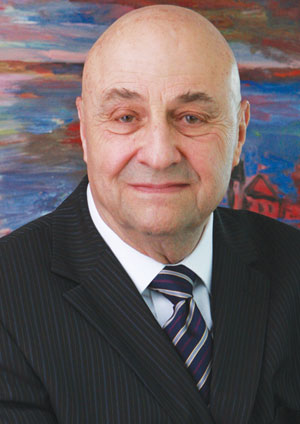Austin Cooper’s successes in the legal profession began before he was even a lawyer.

It was 1951 and the young law student decided to attend court proceedings one day. As he watched the proceedings in one matter, he boldly stood up and decided to let the judge know why there wasn’t enough evidence to convict the accused. The judge dismissed the case, says Mark Sandler, who worked with Cooper for years at Cooper Sandler Shime & Bergman LLP in Toronto.
“He certainly won his first case as a student and many, many after that,” says Sandler.
Many of those cases are legendary, including Cooper’s actions on behalf of nurse Susan Nelles in the 1980s and in proceedings dealing with the well-known wrongful conviction of Guy Paul Morin.
The profession, then, has been mourning one of its legends since Cooper’s death last week following a battle with pulmonary fibrosis. “He demonstrated that you could be a fine gentleman while being a fierce advocate,” says Sandler, who worked with Cooper for 35 years.
While the accolades have been pouring in since Cooper’s death, he also received many of them while still alive. Called to the bar 60 years ago, he received a number of awards over the years: the Douglas Laidlaw medal for excellence; the G. Arthur Martin award from the Criminal Lawyers’ Association; and The Advocates’ Society Medal for his advocacy skills. He also served as a bencher of the Law Society of Upper Canada from 1971-87. Most recently, the law society awarded him an honorary doctor of law.
“He served as a mentor and role model for countless members of the criminal bar and often defended many serious criminal cases,
pro bono — including capital murder cases — before the introduction of the Ontario Legal Aid Plan, now known as Legal Aid Ontario,” LSUC Treasurer Tom Conway wrote on his blog.
A funeral for Cooper was to take place Sunday. While he had practised law up until his recent retirement from the firm, he had stopped going to court a few years ago because “he never wanted to see his forensics skills diminish when he was representing a client,” says Sandler.

 It was 1951 and the young law student decided to attend court proceedings one day. As he watched the proceedings in one matter, he boldly stood up and decided to let the judge know why there wasn’t enough evidence to convict the accused. The judge dismissed the case, says Mark Sandler, who worked with Cooper for years at Cooper Sandler Shime & Bergman LLP in Toronto.
It was 1951 and the young law student decided to attend court proceedings one day. As he watched the proceedings in one matter, he boldly stood up and decided to let the judge know why there wasn’t enough evidence to convict the accused. The judge dismissed the case, says Mark Sandler, who worked with Cooper for years at Cooper Sandler Shime & Bergman LLP in Toronto.